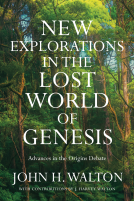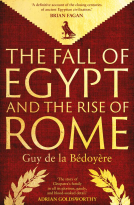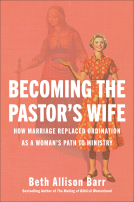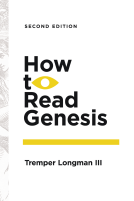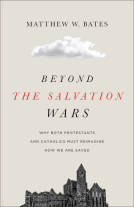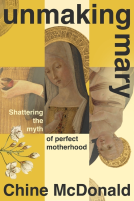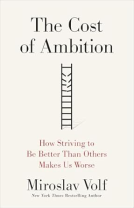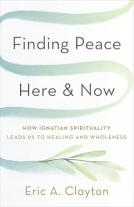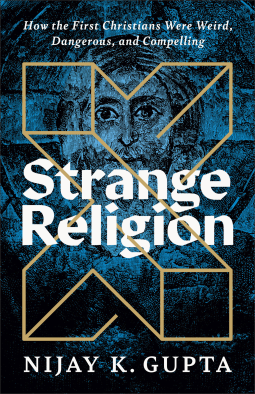
Strange Religion
How the First Christians Were Weird, Dangerous, and Compelling
by Nijay K. Gupta
This title was previously available on NetGalley and is now archived.
Send NetGalley books directly to your Kindle or Kindle app
1
To read on a Kindle or Kindle app, please add kindle@netgalley.com as an approved email address to receive files in your Amazon account. Click here for step-by-step instructions.
2
Also find your Kindle email address within your Amazon account, and enter it here.
Pub Date 27 Feb 2024 | Archive Date 29 Mar 2024
Baker Academic & Brazos Press | Brazos Press
Talking about this book? Use #StrangeReligion #NetGalley. More hashtag tips!
Description
The first Christians were weird.
Within Roman society, the earliest Christians stood out for the oddness of their beliefs and practices. They believed unusual things, worshiped God in strange ways, and practiced a whole new way of doing religion that would have been viewed as bizarre and dangerous compared to other religions of the ancient world.
In Strange Religion, award-winning author and New Testament teacher Nijay Gupta traces the emerging Christian faith in its Roman context, showing how the first Christians
● dared to be different and pushed the boundaries of what was acceptable
● believed, worshipped, and lived in radical ways
● transformed how others thought about religion
● started a movement that grew like wildfire
Brought to life with numerous images, this book shows how the example of the earliest Christians can offer today's believers encouragement and hope.
"A fresh and rigorously researched take on Christianity's founding."--Publishers Weekly
Advance Praise
“Strange Religion is an absolute joy to read! It moved not only my mind but also my heart, as I was taken on a fascinating journey into the peculiar lives and beliefs of early Christians. The book is both academically responsible and very practical. It uncovers an example of what it means for Christians to be in the world but not of the world. Nijay has an uncanny ability to examine ancient texts with precision and care and also to don a pastoral hat to help modern Christians not just study the past but learn from it. Put simply, Nijay’s book makes me excited to be a Christian.”—Preston Sprinkle, bestselling author and host of the Theology in the Raw podcast
“If you have ever asked yourself the question of how others in the ancient world viewed the earliest Christians, then this book is for you! The book highlights how ‘weird’ the earliest Christians seemed to their neighbors both in their emphasis on belief and in their worship and everyday lives. In the twenty-first century, when Christianity has been so dominant for so long, it is hard to imagine a context in which the Christian faith was viewed as out of the ordinary and in some respects dangerously weird. This book may be short, but it packs a punch and is well worth reading.”—Paula Gooder, canon chancellor, St. Paul’s Cathedral, London
“Strange Religion is a must-read for anyone seeking a deeper understanding of the cultural context of the New Testament. I wholeheartedly endorse Strange Religion as an essential addition to your reading list. You’ll love it.”—Kat Armstrong, Bible teacher and author of the Storyline Project Bible study series
“Nijay Gupta attempts to explain how what is familiar to us, Christianity, appeared to be a dangerous and strange superstition in the Greco-Roman world. Whether it is religion without a temple and sacrifices, believing in belief, the ethics of equality, or even hopes for an embodied afterlife, Gupta shows just how ‘weird’ Christians seemed to their contemporaries in antiquity. A terrific resource for anyone wanting to enter the world of the first Christians and understand how Christians were once loathed for practicing a rogue religion.”—Michael F. Bird, deputy principal, Ridley College, Melbourne, Australia
“Gupta matches his impeccable New Testament research with a sensitive eye toward the work of the Spirit for the twenty-first century church. This book is insightful, funny, captivating, and forceful all at once. More than anything, Strange Religion reminds the church of its mission: keep things weird.”—A. J. Swoboda, associate professor of Bible and theology, Bushnell University; author of After Doubt
“Strange Religion is simply an outstanding book. Nijay paints vivid pictures of life in the ancient Roman world and identifies the beliefs and practices that made the earliest Christians stand out in contrast. It left me considering how the church today might recapture some of the weirdness and beauty that made such a mark on the ancient world. If you’ve ever wondered how a tiny Jewish sect, worshiping a crucified Messiah, could ever turn the Roman Empire upside down, then this book is for you.”—Mike Erre, teaching pastor, Journey Church; host of the Voxology Podcast
“For those interested in the historical, social, and religious setting of the first Jesus-followers, Nijay’s book provides a fascinating picture of the many ways in which Christians were radically different from the people around them. Without idealizing the church, he demonstrates how their ideas and practices would have been weird, dangerous, and compelling in their own society. These Christians embodied their faith within a loving extended family around a God who had come to earth in Jesus to bring them into an intimate, loving, Spirit-filled relationship with himself. Here, Nijay explores the implications of this alien but attractive message.”—Lucy Peppiatt, principal, Westminster Theological Centre
“Strange Religion gives us a winsome and accessible introduction to two strange phenomena—the practice of religion in the Greco-Roman world and the faith and practice of the early Christians within that world. The first is probably strange to us, the second strange both to the Christians’ ancient neighbors and to us. Nijay’s exploration of the early Christians’ fundamental convictions and foundational practices promises to help us rethink our own in a post-Christendom environment, much to the twenty-first century church’s benefit. His exploration of their strangeness promises to give us permission to follow Jesus more fully where obedience might make us look strange today.”—David A. deSilva, Trustees’ Distinguished Professor of New Testament and Greek, Ashland Theological Seminary
“Nijay Gupta takes us to the streets of Rome, where gods and their temples stand on just about every corner and where people look to their deities not so much for pardon or ethical transformation as for riches, spells, vendettas, state protection, and victory over enemies. Onto these streets in the first century, Gupta vividly tells us, came the very strange followers of Jesus with their news of a recent crucifixion and resurrection, the renewal of all things, and, above all, a loving Father who is forming a community marked by love amid the evils and anxieties of the world. At a time when contemporary Christians seem uncomfortable appearing odd to their neighbors, Gupta’s reminder of the inherent strangeness of the way of Christ is refreshing and vital.”—John Dickson, Jean Kvamme Distinguished Professor of Biblical Studies and Public Christianity, Wheaton College; host of Undeceptions; author of Bullies and Saints: An Honest Look at the Good and Evil of Christian History
Available Editions
| EDITION | Other Format |
| ISBN | 9781587435171 |
| PRICE | US$18.99 (USD) |
| PAGES | 240 |
Available on NetGalley
Featured Reviews
 Nicolas R, Librarian
Nicolas R, Librarian
Similarly to Lost Christianities by Bart D. Ehrman, this book examines the weirdness of early Christianity and all of the various permutations it took. For someone who isn't versed in early Christianity, it's a real treat to learn about!
One thing I didn't love was the lack of images in the ARC. I felt like that in particular made reading it a demonstrably worse experience.
 Willy M, Reviewer
Willy M, Reviewer
An enjoyable book to help give context to the Christian faith. I would definitely recommend this to anyone of that faith or interested to know more. It is full of references and important descriptions from historical documents. I don't know of few books that give so much information on this topic so easily and in so pleasant a read.
It is more comforting than challenging. This is not a drawback, not everything has to be challenging and adversarial. Instead, it's a positive and profoundly engaging book to bring you closer to the context of the development of Christianity from its origins in Antiquity.
 Reviewer 1281795
Reviewer 1281795
Nijay Gupta is a gift to those of us trying to understand the ways of the earliest Christians. This book points out the early Christian distinctives, oddities, and points of departure with its cultural world. Gaining an appreciation for how "strange" Christianity was helps me to be challenged in gaining a vision of a less-watered down version of Christianity that reclaims some of the potency of its earliest forms.
Strange Religion - Nijay K. Gupta
The book is split into 4 sections, with 12 chapters, an introduction, and a short conclusion. There are end notes at the back. The 4 sections are: Becoming Christian, What the First Christians Believed, How the First Christians Worshipped, and How the First Christians Lived.
I reviewed an advance reader copy, meaning it wasn’t in its final form. My copy had no illustrations, just captions where the illustrations should go. So I cannot comment on their quality, though there were a good number of them and they’re placed to illustrate interesting aspects of the text.
The author used a decent number of quotes from ancient texts in addition to numerous Old and New Testament quotes. He often tied things together with modern examples which I found a bit jarring but might help a general audience better understand the thought process of ancient peoples.
The book has some great aims and asks some excellent questions. These are questions that cannot be fully answered, as sources are limited, but it was frustrating at times how short the discussion was. The author might give a few possible answers but little or sometimes no reasoning on why these answers should be considered.
For example, in the 3rd chapter he questions why Romans would join the new Christian church when it was so radically different from what they were used to. He mentions 4 possibilities: the intriguing idea of monotheism, the promise of eternal life, that the new faith blended religion, philosophy and morality in a way others didn’t, and the concept of loving everyone. He mentions these but has no follow-up discussion about them and simply ends the chapter. Also strange is the absence of Christianity’s idea of equality as one of those possibilities. Many early adopters of Christianity were rich upper class women (women whose houses were gifted to the church to become buildings of worship upon their deaths). While upper class women had more agency than many in ancient Rome, the Christian faith gave them power over belief in ways other religions denied them. The author does cover the stratification of Roman society and how Christians tried to upend that with their idea of everyone being treated equally within the church in a later chapter, but he never posits this as a reason why lower class individuals might have joined the church in the first place. Even in his conclusion, when he again considers the question of what made Christianity so compelling, he neglects to mention it in favour of purely spiritual answers.
Despite my desire to see more discussion, the book is excellent at giving a good idea of how differently ancient peoples thought about concepts like religion. It was very useful learning how Greeks and Romans worshipped. I also appreciated learning more about how early Christian practice was different from the Jewish faith it sprang from. I highlighted numerous passages in the book that I thought were worth reflecting on. Christianity has changed a lot from those early years, so it was interesting seeing what the first Christians believed and how they followed Christ.
Consider this a great introduction to the topic of how early Christians practiced and how their worship and thought patterns differed from those of the people around them. It’s a fairly short, easy to read book that will give you a lot to think about.
This is more than a history book on the ancient Church, it is an examination of the early Christian faith and practice in its context and, to the sensitive reader, how it is relevant to us today. American author and philosopher David Foster Wallace is quoted as saying "A fish doesn't know it's in water”, meaning that the most obvious realities that surround us are often hard to identify and define. Followers of Jesus Christ in the Western are mostly unaware of how jarringly different, or weird, Christianity is to other world religions. Surrounded by the remnants of “Christendom” and western individualism, it is hard to notice the radical difference Jesus made to the world then, and our lives now. Nijay Gupta helps the reader to see just how weird Christianity was to the Romans during the time of the early Church and in doing so awakened me to again to many of the key elements of genuine Christian faith now. Although this book is accessible written, Gupta is an accomplished academic writer and the material is well researched and footnoted.
I have worked in cross cultural missions in the majority world (specifically Asia) for over twenty years and found that Gupta’s book is extremely accurate in laying out many of the key differences between Christianity and the religions I have encountered in Asia. Not only did the Romans think Christians were weird, they thought they were dangerous because they represented a risk to the “pax deorum”, (meaning “peace with the gods”) and as such put the entire community in danger. This is also true today in many majority world contexts! Accordingly, I would strongly recommend this book to every westerner who works in cross cultural missions. Beyond this, I fully recommend this book to all who are curious about the early church and its cultural context.
 John P, Reviewer
John P, Reviewer
I struggle with all the Latin phrases. They may have meaning, but they exclude us who don’t know their meaning. Otherwise, it is good so far (just started chapter 3)
Fascinating History Marred By Prooftexting And Dearth Of Bibliography. This was an utterly fascinating look at the first few hundred years of the Christian Church as it related to its world's dominant government - and religion. I genuinely learned quite a bit from reading this book, and Gupta kept the overall tone scholarly enough to be sufficiently serious without going into pretentiousness. Indeed, the *only* problems I had here, that are automatic star deductions when I encounter them, are the rampant prooftexting - the practice of citing Bible verses out of context in order to "prove" a particular point - and the dearth of a bibliography, clocking in at just 12% or so of the overall text when 20-30% is more normal in my experience across hundreds of nonfiction titles over the last several years. Even with being more willing to at least *slightly* lower that given more recent experiences, 12% is still simply too low.
But for anyone interested in the history of the early Church, for any reason: read this book. Christians, no matter your bent, read this book and consider its words in relation to your existing governments and their religions.
Very much recommended.
What really made the first Christians different?
This is the foundation for New Testament researcher and noted author Nijay Gupta's "Strange Religion: How the First Christians Were Weird, Dangerous, and Compelling."
Gupta co-chairs the Pauline Theology Seminary of the Institute for Biblical Research and serves as a senor translator for the New Living Translation. Thus, he brings into "Strange Religion" both extensive research and a well-developed understanding of how Christianity fit, or mostly didn't fit, into a world that was governed by inaccessible gods and a Roman empire that wasn't particularly concerned about the relational aspects of faith.
As Gupta states very early in the book, the first Christians were weird and it feels likely that modern day Christians aren't really aware of just how weird.
"Strange Religion" is divided into four distinct sections - Becoming Christian, What the First Christians Believed, How the First Christians Worshipped, and How the First Christians Lived. There's a natural flow to the sections that works well and Gupta both introduces and concludes the book. As one would expect, there's a wealth of provided citations to end the book.
"Strange Religion" is likely to most appeal to those wishing to gain an understanding of the earliest foundations of Christianity and how it stood out. Those with a stronger knowledge of Christian history, and most certainly seminary graduates, will appreciate Gupta's work but will likely not learn as much as a significant amount of material that's here is fairly basic knowledge of early Christianity. While it's fun to explore this period through the lens of just how completely weird it all is, if there's a basic lack in the book for me it's that the "weirdness" never really registered.
Maybe it's because I'm too weird for it?
However, one can't help but appreciate Gupta's extensive research and ability to make accessible just what made Christianity so different than Roman society. The earliest Christians had beliefs that were odd and practices that were entirely unique. They believed unusual things, worshipped God in strange ways, and lived as outsiders in a society where that choice alone could be considered quite dangerous. Quite simply, they did religion differently. To understand this, is to really begin to grasp the intentional choice that the first Christians made to be different and to push boundaries and to begin a transformation of how society viewed religion. It was bold and brave and it caught on like wildfire.
"Strange Religion" is more of an introduction to this world, both surprisingly brief in subject matter and overall length and more prescriptive than engaging. This isn't a bad thing - "Strange Religion" starts a valuable discussion and I'll admit that even as a seminary graduate myself I found myself digging back into my theology to look up Christian history, terminology, and beliefs/practices. Gupta's obvious excitement with this material made me excited - in turn, I found myself starting with "Strange Religion" and exploring further.
The final edition of "Strange Religion," my version was an ARC lacking the images/graphics to be included, will have numerous images to enhance Gupta's informative and intellectually stimulating material.
"Strange Religion" is an accessible introduction to religion in the Roman world and how the early faith and practices of the first Christians began to change that world. Both worlds, if we're being honest, were kind of strange though the Roman world was the accepted norm and Christianity upended it. In a world where conformity can often be expected, "Strange Religion" is, perhaps most of all, a reminder that we may very well be called to be weird, strange, and dangerous in living out what it means to be Christian.
Highly recommended for anyone who is interested in the early church and Christians. I enjoyed learning about the culture surrounding the New Testament church.
 Freddy L, Reviewer
Freddy L, Reviewer
Strange Religion is one of those books where I never grew tired of from beginning to end. Perhaps it’s because it is both accessible and yet endlessly fascinating when comparing Christianity and the Romans and Jewish religion at the time. It is indeed strange, we would after 2,000 years, believe in a Roman criminal absent a temple, an idol, a hiearchy of gods, class, priests, out of duty to appease their wrath and to maintain societal order, and instead believe he’s the son of God, messiah, who indwells us in His Spirit, came to his creation and lived among us, bringing a new equality on the basis of love. No wonder it’s not strange to us now, we are either the beneficiaries of it and not know it, or we don’t realize how strange we are. My hope is all who read this book will become strangely, weirdly compelling to the world once again, as our strange God intended his community to be!
 William D, Reviewer
William D, Reviewer
If you think Christians are weird now, just wait until you read this book! Nijay Gupta has written an incredibly interesting and engaging book exploring the faith, practices, and behaviors of Christians within the first few centuries of the church within the surrounding Greco/Roman culture. Gupta's ability to connect with his audience once again shines through as he has written yet another scholarly, yet accessible, book concerning an important aspect of Christianity. Full of insight and history, this book will not only inform you but can quite possibly even motivate and encourage you into becoming weird for Jesus in your own context. Learn how the earliest Christians not only lived among the culture, but began to change it. This book will leave a lasting mark on how you read Scripture, how you think about the church, and how you move forward in your own faith. Highly recommended!
 Casey C, Reviewer
Casey C, Reviewer
Disclaimer: I'm a former student of the author's and received early access to the book in exchange for my honest review.
Nijay Gupta does it again with an excellent survey of how early Christians would have been perceived within the context of ancient Roman paganism. And how would they have been perceived? Weird. It's easy for us in the 21st century, where Christianity has been a well-established religion for centuries, to forget just how weird the early Christians were. There are some very significant ways in which they went against the grain of the religious culture of the Roman world and Gupta does a great job of outlining exactly how they did so.
Strange Religion was a very accessible and readable book, while also clearly being well-researched. I would highly recommend this book to anyone interested in learning more about the cultural and religious landscape into which Christianity was born.
 Juile H, Reviewer
Juile H, Reviewer
Excellent read! The author has obviously done much research on the history of the early church. There is so much information in this book. It is aptly titled as we would think our church ancestors were strange. I learned so much that I hadn't known previously! I don't want to tell too much and spoil the discovery for other readers, but I highly recommend this book if you have any interest in the history of the church and/or early Christians or if you just want to gain more understanding of Christianity.
 Brian L, Reviewer
Brian L, Reviewer
Gupta manages to take what could be an extremely convoluted, confusing, and complicated topic and presents it in a way that is clear and concise. He takes what could be dry and academic research and instead breathes life into the material and offers a vibrant look at the earliest Christians in light of their present environment.
Covering topics like a cultural view of the gods, keeping household idols, early worship and religious hierarchy, Gupta provides us with an incredible and immersive view of Roman life and its cultural religious practices with clear contrasts on just how different and countercultural the first Christians were.
If you've ever heard about modeling an "Acts 2 church" or pursued a "biblical Christianity," don't miss out on this book and get an authentic exploration of what it really looked like.
Today it can be difficult to understand how disruptive and transformative Christianity was when it first made the scene, given ubiquitous it is in western society today. To truly get of good feel for this, you need to know the context from which Christianity emerged. Dr Gupta helps to provide a general treatment of that context in Strange Religion, highlighting both the common perception of how religion was supposed to work then as well as providing the striking contrasts of christian worship that made adherents to that way “weird.” The book is divided into four (4) parts that logically progress from what the ancients expected from their religion and how they practiced it, to what they believed and how they behaved and lived … and where each of these were different for Christians AND why that difference might be considered dangerous. There are a few quotes from scripture to help illustrate a particular point, but IMHO it stops short of actually using prooftexting (the quotes are part of the support and not the foundation). If anything, I thought in many cases the author didn’t delve deeply enough to provide any surprising incites, but provides an excellent introduction that should prove helpful to anyone interesting in interpreting christian scripture … especially the epistles of St Paul.
 Jadon R, Educator
Jadon R, Educator
Gupta is quickly emerging as one of the most important voices in western christianity. He has that special gift of writing for a wide audience without sacrificing academic integrity. Strange Religion brings you into the world of the earliest christians, demonstrating clearly how a religion that has become so entwined with cultural norms and comfort was once perceived as weird and dangerous.
 Mechelle S, Reviewer
Mechelle S, Reviewer
I knew I was going to like this book as soon as I saw who was the author. He wrote one of my favorite books I read last year: Tell Her Story, about women in the early church.
This book was honestly even better. Early Christianity is a niche interest of mine, particularly how it came to be and how the belief system of Judaism was changed and morphed with Roman culture to form a distinct religious practice. This book shows, from a Christian perspective, just how deeply radical Christian practice and belief would have seemed to the Romans around them. Though Jews had been a fixture in the empire for centuries, and held a special place that permitted different custom, the nascent forms of Christianity that emerged were wholly different nearly from the beginning.
I read a book a few years ago called The Darkening Age, which is also about nascent Christianity, but from the Roman perspective. Reading these side by side would give an incredible 360 view of how Rome viewed the Christians and how Christians viewed Rome. How Roman’s viewed upsetting the pax deorum was seen as a cataclysmic danger, not simply as denying the messiah. How their practice was not just weird, but disturbing and dangerous and their beliefs were arrogant and could possibly lead to upsetting a gentle balance. This perspective makes the early martyrdoms more understandable and in such can prevent our own tendency toward tunnel vision as we perceive others around us with different practice.
This is one of those books that I will recommend to anyone who will listen. It’s highly accessible, extremely well researched, and tells a greater narrative of the time period than purely an academic study. If you’re working on understanding the time of Acts, or are interested in how far Christianity has changed (or not), definitely give this book a read.
Christians have often encouraged one another to be a “peculiar people,” and we can certainly think of many ways they have imagined to become quite “peculiar” in their society.
But Nijay Gupta does all Christians a great favor in Strange Religion: How the First Christians Were Weird, Dangerous, and Compelling (galley received as part of early review program). He returns to the sources to see what made Christianity so revolutionary in the first and second centuries.
The author is well read and well versed in both Second Temple Jewish and Greco-Roman history and primary sources. He systematically lays out how Christian belief and practice were not only outside the mainstream but easily seen as subversively so, and in ways Christians (or even non-Christians) do not think about twice.
His discussion of Roman religion and what Romans thought of in terms of gods and their service, for instance, is thus illuminating. The fact Christians did not offer sacrifices was quite the departure; even the Jewish people offered sacrifices, and a religious ideology without such sacrifice was unheard of. The creation of a kinship community based on shared belief was also very much outside the mainstream.
Gupta’s book should become the gold standard for consideration of early Christians in their temporal context. He did well at showing how the early Christians did not need to go out of their way to be weird and radical; they did not need to make peculiarity their personality or try to get into the public eye with some reactionary postures. Their confession of Jesus of Nazareth was enough. As Christians we don’t need to go out of our way to be weird. Our confession of Jesus of Nazareth - and making good on that confession - should still be enough.
 Bookseller 145552
Bookseller 145552
In "Strange Religion: How the First Christians Were Weird, Dangerous, and Compelling," New Testament scholar Nijay Gupta provides a fascinating exploration of the early Christian church and how it stood out in the context of the Roman world. Drawing on extensive research and a deep understanding of early Christian history, Gupta illuminates the unique beliefs, worship practices, and way of life that set the first Christians apart from mainstream Roman society.
Gupta divides the book into four main sections: Becoming Christian, What the First Christians Believed, How the First Christians Worshipped, and How the First Christians Lived. Through these sections, he demonstrates how the early church represented a radical departure from the religious norms of the time. Christians embraced monotheism, the promise of eternal life, and a faith that blended religion, philosophy, and morality in a way that other belief systems did not. They also lived out their faith in practical ways, forming tight-knit communities characterized by equality, love, and a commitment to following Jesus.
While the early Christians' beliefs and practices made them compelling to many, they also rendered them dangerous in the eyes of the Roman power structure. By refusing to conform to societal expectations and challenging the traditional religious and social order, Christians faced suspicion, ostracism, and even persecution.
Throughout the book, Gupta makes the ancient world come alive, drawing connections between the early church and contemporary Christian practice. He challenges modern readers to consider how the "weirdness" of the first Christians might inspire us to live out our faith more boldly and distinctively in our own cultural context.
Although Gupta's writing is accessible and engaging, "Strange Religion" is thoroughly researched and includes extensive citations and references. The book serves as an excellent introduction to early Christian history and thought, providing valuable insights for both lay readers and those with some prior knowledge of the subject.
In conclusion, "Strange Religion" is a thought-provoking and enlightening exploration of the early Christian church and its place in the Roman world. By highlighting the ways in which the first Christians were weird, dangerous, and compelling, Gupta invites readers to reflect on the transformative power of the gospel and the call to live as a distinct and countercultural community of faith.
 Reviewer 1154977
Reviewer 1154977
"Strange Religion" by Nijay Gupta
5🌟/5🌟
Ever since I read "Tell Her Story" by Dr. @nijay.gupta I have been eagerly waiting for this book.
I enjoy reading his works and hearing him speak on the historical context of the Bible. His perspectives have been very influential in my faith. This book was just as interesting as his previous works.
I found myself learning more about the religious traditions and practices of ancient Rome. Learning about the historical context helped me visualize how different, radical, and strange early Christians were to their Roman neighbors. Understanding the historical context also explains why the gospel of Jesus was so threatening to the social and religious structures and authorities in ancient Rome.
Thank you, Dr. Gupta for writing this book.
And thank you @BrazosPress for this digitally copy to read and review.
 Janalyn P, Reviewer
Janalyn P, Reviewer
In Strange Religion Mr. Gupta starts a great narrative about the first Christians he compares the Christians to the Romans and their many gods he also quotes people of the day‘s opinion of Christians and the Christians opinions of other people. There were some really great comparisons in the book I found his explanations for many things to be easy to understand due to these comparisons not only that he also sided references not to mention his ultra easy way of telling a complex history. In the beginning of the book he quoted a man who I believe‘s name was Sero saying that if everyone became Christian Christians wouldn’t want to be Christians anymore and I thought that statement was so apropos of things that are happening today but also just an lol statement I wish I had the knowledge to give a great review of this book because I absolutely loved it and totally enjoyed it I think the author has a conversational way of telling a story because even though this was nonfiction it was as entertaining as any fiction book I have read. From comparing God to a cell phone and religion to our current sports teams he not only makes you laugh but put the text in a way one can understand it especially for layman like myself. I want to thank the author the publisher and NetGalley for my free arc copy please forgive any mistakes I am blind and dictate my review.
 Bronwyn D, Reviewer
Bronwyn D, Reviewer
This is not just a book looking at early Church history. It is more than just a book about context. It is a fascinating read which gets inside the mindset of the local people of the time in which the early Christians were living. Nijay K Gupta helps us to set aside the world view that we take for granted today and view the world of the early Christians with a different set of spectacles. It is well researched, and an edifying and accessible read.
 Reviewer 145564
Reviewer 145564
3.5 stars, rounding up to 4 for the amount of research that went into the book. Honestly, not having any of the photos in the digital ARC was disappointing. I assume they're helpful to see and provide a better reading experience, as every single one is referenced in the manuscript, but we can't view them in the review copy or find them online from the "link" given. I very much enjoyed Gupta's prior release -- it was easily a 5-star rating. This title was much more difficult to get through, as it's more academic and also WAY more about Rome than the description seems. While that absolutely makes sense, you've got to compare and contrast to show the difference due to the premise of the book, it seemed like a greater emphasis and word count was given to Rome in each chapter, then quickly followed up with how early Christians were strange. After finishing this book, I realized that the publishers between the two differ. Interestingly, the prior release as an academic title but seemed much more approachable. (I say this as a graduate with a Religion Minor who really does enjoy learning and reading these types of books, but could easily set this one down while the other was more of a page-turner.) All that said, Dr. Nijay Gupta is brilliant and I'll continue reading his books. Hopefully the next one is more like the prior than this!
 Christina O, Librarian
Christina O, Librarian
I think the argument is good-and it is accessible for the average reader- but unfortunately I didn't find the writing engaging.
Such great deep-dive into the early Christian church. Well researched and certainly could be considered a must-read for anyone wanting a thorough and well-rounded view of what set the early church apart from other religions of the time. Little slow to start, but stick with it. I'd love to see the photos which (weren't uncluded in the arc.)
 Reviewer 1155610
Reviewer 1155610
I found this book to be an engaging read. It was perhaps less scholarly than some books on the topic, but that's part of what allowed me to enjoy it as much as I did. The contents were well laid out and I found that the author had done plenty of research to make his points compelling.
The story of Christianity and the early church being strange to the culture of the day is something we don't often think about as Christianity has become so much the norm for western culture, being the dominant religion, and this book made me think that maybe we need to be come "strange" again. It was some of the things that they did differently from those around them that made others around them curious to know more and to ask the questions that made them want to be a part of this new strange religion that preached loving others and community.
The author lays out a lot of the ways the early church was different from those around them, many of which might make us think that the early church was perfect. To counter that he also includes a short chapter on the shortcomings, including continuing to allow slavery, in that way perhaps they weren't strange enough. I do think that this chapter might have been longer and more fleshed out, to really show some of the issues that existed.
Overall I enjoyed this book and think that it shows some of the things that we take for granted in the Christian faith are the extract things that made it strange and weird to those around them at the beginning,
I received an advanced copy of this book from Netgalley. All opinions are my own.
 Andrew P, Reviewer
Andrew P, Reviewer
Nijay K. Gupta’s "Strange Religion: The Gospel as Subversive Spirituality" presents a thought-provoking examination of early Christianity, framing it as a radical and subversive movement that challenged the prevailing religious and social norms of its time. Gupta's work is a refreshing and insightful contribution to the field of New Testament studies, offering readers a deeper understanding of the transformative nature of the Christian faith.
In "Strange Religion," Gupta explores how the early Christian movement distinguished itself from the religious and philosophical systems of the Greco-Roman world. The book is divided into several sections, each addressing different aspects of early Christian spirituality, including its countercultural ethics, communal practices, and theological innovations, and orthopraxis. Gupta argues that the gospel's inherent strangeness and its subversive elements were key to its appeal and growth in the first century.
Gupta's writing is both scholarly and accessible, making complex historical and theological concepts understandable to a broad audience. He utilizes a wide range of sources, including biblical texts, historical documents, and contemporary scholarship, to build a compelling case for the subversive nature of early Christianity. His interdisciplinary approach enriches the narrative, providing readers with a multifaceted view of the early Christian world.
One of the book’s strengths is its ability to connect ancient texts and contexts with contemporary issues. Gupta draws parallels between the countercultural aspects of early Christianity and modern-day spiritual and social movements, inviting readers to consider the relevance of the gospel's subversive message today. This perspective not only deepens the reader’s understanding of the past but also challenges them to reflect on their own spiritual and ethical commitments.
Countercultural Ethics: Gupta highlights how early Christians adopted ethical practices that contrasted sharply with those of the surrounding society, such as radical generosity, nonviolence, and sexual purity. These practices served as a distinctive marker of Christian identity.
Community and Ritual: The book examines the communal and ritualistic aspects of early Christianity, including the practices of baptism and the Lord’s Supper, which fostered a sense of belonging and solidarity among believers.
Theological Innovations: Gupta explores how early Christian theology, particularly its understanding of Jesus as Lord and Savior, challenged the religious and imperial ideologies of the Roman Empire.
Subversive Appeal to live counterculturally: The book argues that the gospel’s appeal lay in its ability to offer a transformative and hopeful vision of life that stood in stark contrast to the dominant cultural narratives of the time.
"Strange Religion: The Gospel as Subversive Spirituality" by Nijay K. Gupta is a compelling exploration of the radical and transformative nature of early Christianity. Gupta's scholarly yet accessible approach makes this book a valuable resource for anyone interested in understanding the historical and theological roots of the Christian faith. By highlighting the subversive elements of the gospel, Gupta invites readers to reconsider the revolutionary impact of Christianity both in its early days and in the contemporary world.
This book is a must-read for students of theology, history, and religious studies, as well as for anyone seeking a deeper understanding of the gospel’s enduring power to challenge and transform society. Gupta’s work reminds us that the message of the gospel, with its call to radical love and justice, remains as relevant and transformative today as it was two thousand years ago.
 Stacey C, Reviewer
Stacey C, Reviewer
I really enjoyed this book! The facts were told in a way that made me re-examine how I live out my Christian faith. The last 2 sections of the book were really interesting to me. Highly recommend!
I received a complimentary copy of this book from NetGalley. Opinions expressed in this review are completely my own.
 Ivy A, Reviewer
Ivy A, Reviewer
Nijay K Gupta does a great job in this book of educating the reader on the early Christian church. While the reader and the Christian community at large may know about the origins of the Church, what the reader may not realize is how strange and unique this new faith and culture was compared to other religions and beliefs at the time. This book is highly educational and I recommend this for those wanting to learn more about the origins of their faith.
